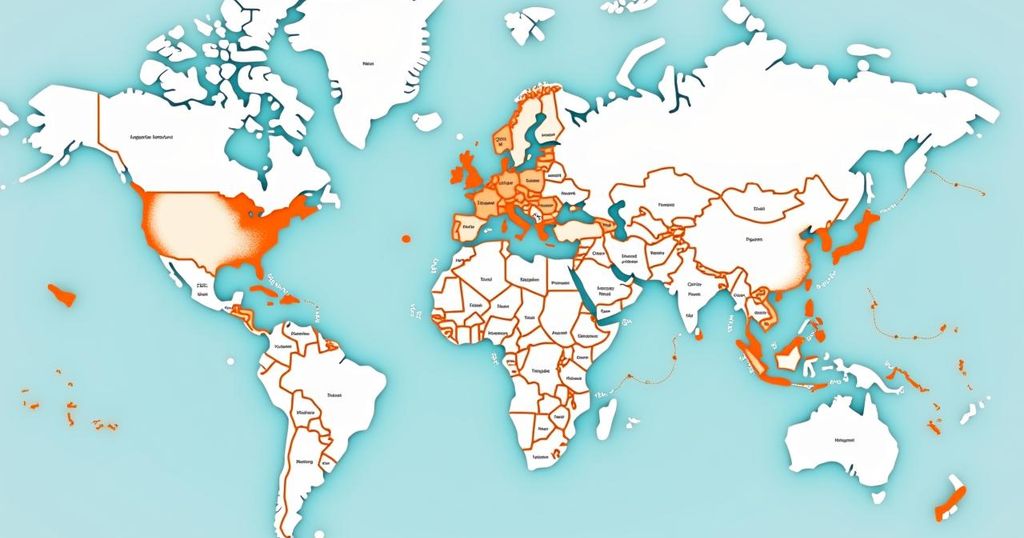A sustainable global universal basic income (UBI) is achievable through a ‘cap and share’ model that intertwines fossil fuel regulation with social equity, as promoted by Pope Francis. This approach not only addresses extreme poverty but also facilitates necessary wealth redistribution from the Global North to the Global South. By taxing fossil fuel extraction and wealth, substantial funding for global UBI can be generated, which could transform lives, especially for those in extreme poverty. The proposed Global Commons Fund could ensure the sustainability of this initiative, promoting equity while addressing climate change.
The proposition of a sustainable global universal basic income (UBI) is illuminated through a compelling model that interconnects fossil fuel regulation and socio-economic equity under a ‘cap and share’ scheme. As articulated by Pope Francis during the World Meeting of Popular Movements, which he has spearheaded, a global UBI serves not only as an act of compassion but also embodies what he terms ‘strict justice’ in the fight against poverty and economic inequality. His endorsement aligns with a growing global consensus advocating for the redistribution of wealth via unconditional monthly payments for each individual, thereby ensuring basic needs are met and advancing economic security as a fundamental human right. The conversation surrounding global UBI transcends mere poverty alleviation; it speaks to social justice, recognizing the historical wealth disparity caused by resource exploitation, particularly in the Global North, which leaves nations in the Global South lacking the fiscal means to support their own UBI initiatives. A global UBI promises not only to eradicate world poverty but also to facilitate the vital redistribution of wealth from developed to developing nations. Despite criticisms regarding the financial viability of such a venture, our organization, Equal Right, presents research within the framework detailed in the paper “Climate Justice Without Borders.” Our models indicate that implementing a charge of $135 per tonne on global fossil fuel extraction could yield approximately $5 trillion annually, sufficient to provide a global UBI of no less than $30 per month for every individual. Furthermore, a progressive wealth tax on the richest individuals, combined with a minor financial transactions tax, could contribute additional funds, totaling substantial monthly dividends for all. Importantly, while these figures suggest a promising avenue for funding, we must recognize the finite nature of these resources as carbon emissions diminish and wealth distribution becomes fairer. To address this potential sustainability challenge, we propose the establishment of a Global Commons Fund (GCF). This fund would utilize the revenue generated from fossil fuel charges to invest in a green transition while distributing UBI dividends to citizens, aiming for self-sustainability, mirroring successful sovereign wealth funds. This comprehensive approach will also assist in breaking the cycles of debt endured by many developing nations, providing crucial financial support for climate initiatives and incentivizing commitments to maintain fossil fuel reserves. To prevent further resource exploitation and maintain equitable access to resources, we advocate for a scientifically grounded global cap on carbon extraction. Moreover, evidence from global pilot programs, such as those conducted in various countries, underscores the transformative impact of UBI payments, especially for populations entrenched in extreme poverty. Beyond combating poverty, UBI, as evidenced in certain projects, can stimulate the transition towards cleaner energy alternatives, ultimately benefiting the broader climate agenda. As policymakers converge at COP29, it is imperative that they consider the transformative potential of the ‘cap and share’ system—an innovative and essential strategy that not only champions Pope Francis’s call for a global UBI but also addresses the urgent need for environmental justice. This dual approach presents an opportunity to combat poverty and facilitate climate mitigation, embodying a holistic strategy that is progressively crucial for our shared future.
The discourse surrounding universal basic income has gained momentum, particularly in the wake of increasing social inequality and climate change concerns. Pope Francis has been a prominent advocate for global UBI, emphasizing its moral and ethical implications in fostering economic security and justice. Many developing nations face insurmountable challenges in financing their own UBI programs due to historical patterns of resource exploitation that have resulted in wealth concentration in the Global North. Therefore, the need for a global mechanism that redistributes wealth and provides financial support to the poorest is paramount. Various economic models propose systems to fund UBI through innovative taxation on fossil fuels and wealth, suggesting that such measures could generate sufficient funds to support a basic income worldwide, particularly for those in extreme poverty. The establishment of a Global Commons Fund seeks to marry environmental sustainability with social equity, presenting a comprehensive solution to the intertwined crises of economic disparity and climate change.
In conclusion, a sustainable global universal basic income is achievable through a structured ‘cap and share’ approach, which not only mitigates climate change but also ensures economic justice across the globe. The proposed revenue models indicate a viable path to fund meaningful UBI payments that can significantly impact those living in extreme poverty. The establishment of a Global Commons Fund to facilitate both UBI distribution and investment in green initiatives underscores the interdependency of economic and climate justice. Seeking a resolution to these interconnected challenges is crucial as the world unites at COP29, where policymakers can explore the potential of this revolutionary concept and work collectively towards a more equitable and sustainable future.
Original Source: www.aljazeera.com






